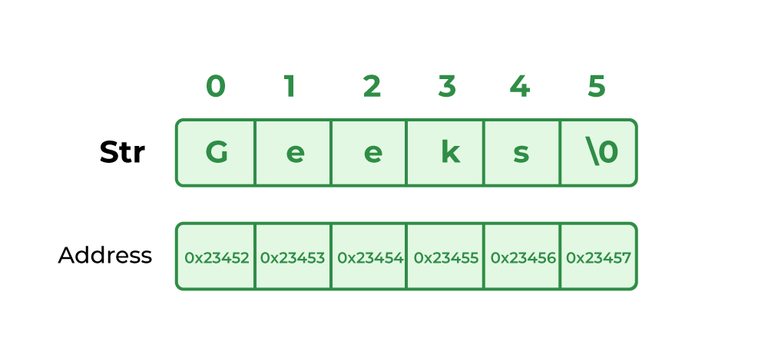Why Are Strings Immutable in Java? Thorough Evaluation for Programmers
Why Are Strings Immutable in Java? Thorough Evaluation for Programmers
Blog Article
Immutable Strings: A Trick Element in Ensuring Information Consistency and Dependability
In the world of data administration, the relevance of immutable strings can not be overstated. The idea of immutable strings goes beyond plain technicality; it is a linchpin in the complex web of information governance.
The Idea of Immutable Strings
Immutable strings, an essential idea in shows, describe strings that can not be modified once they are developed. Essentially, once a string worth is designated, any kind of operation that appears to modify the string actually creates a brand-new string. This immutability ensures information consistency and integrity in applications, as it prevents unexpected changes to the original data.
Advantages in Data Consistency

Data consistency is vital in different aspects of software application growth, including data source management, multi-threaded environments, and dispersed systems (Why are strings immutable in Java?). Unalterable strings contribute considerably to accomplishing this uniformity by stopping information corruption due to simultaneous gain access to. In situations where multiple procedures or strings connect with the same information all at once, unalterable strings work as a secure against race problems and synchronization problems
In addition, the immutability of strings streamlines debugging and screening procedures. With immutable strings, developers can trust that when a string is set, it will remain unmodified, making it less complicated to trace the resource of mistakes and making certain that examination situations create constant results. This reliability in data handling inevitably results in extra robust and steady applications.

Implementing Unalterable Strings
Guaranteeing the immutability of strings requires a thoughtful approach to their execution in software advancement. Once a string object is created, one vital approach is to create string classes in a method that stops alterations. By making strings immutable, programmers can improve data consistency and dependability in their applications.
To execute unalterable strings efficiently, designers should prefer producing new string objects instead of customizing existing ones. This practice makes sure that when a string is designated a worth, it can not be transformed. In addition, any procedure that shows up to customize the string must develop a brand-new string with the wanted adjustments rather than modifying the original.
Moreover, utilizing unalterable strings can simplify concurrency management in multi-threaded settings. Given that immutable strings can not be altered after production, they can be safely shared amongst numerous strings without the risk of data corruption.
Function in Integrity Guarantee
In software application advancement, the utilization of immutable strings plays an important function in making sure the dependability of information procedures. Immutable strings, once produced, can not be changed, ensuring that the data they stand for continues to be regular throughout the application's implementation. This immutability residential property supplies a level of assurance that the data being refined will not be inadvertently changed, bring about unanticipated end results or errors in the system.
By integrating unalterable strings into software application style, programmers can boost the integrity of their applications by reducing the risks connected with mutable data - Why are strings immutable in Java?. Unalterable strings assist in avoiding data corruption or unexpected modifications, which can be particularly important read here when taking care of delicate information or when data stability is vital
Additionally, using unalterable strings simplifies concurrent handling, as multiple threads can safely access and share string information without the threat of one thread altering the web content while another reads it. This facet contributes substantially to the general integrity of the software system, making sure consistent and predictable actions in information handling procedures.
Applications and System Assimilation
The seamless combination of immutable strings into various applications and systems is crucial for making sure durable data consistency and integrity throughout varied technical atmospheres - Why are strings immutable in Java?. Unalterable strings play a vital duty in boosting the honesty of data exchanges and interactions within facility software environments. By incorporating unalterable strings right into applications, designers can mitigate the risks linked Read Full Article with data meddling, unauthorized adjustments, and unintended changes, thus strengthening the overall safety and security stance of the system
Immutable strings can improve interoperability in between diverse systems by offering a standard style for data representation, making it possible for much more efficient data processing and exchange methods throughout interconnected platforms. By taking on unalterable strings in applications and system integration procedures, companies can fortify their information infrastructure and promote the reliability and uniformity of their information assets.
Final Thought
In verdict, immutable strings play a vital role in keeping data uniformity and integrity in numerous applications and system integrations. By ensuring that strings can not be changed as soon as produced, the integrity of information is protected, lowering the danger of variances and errors. Applying unalterable strings can substantially boost the reliability of systems, ultimately causing more reliable and accurate information handling.

Report this page